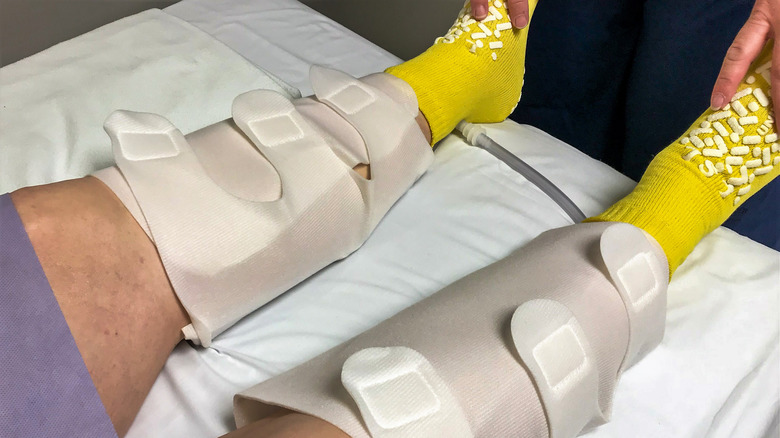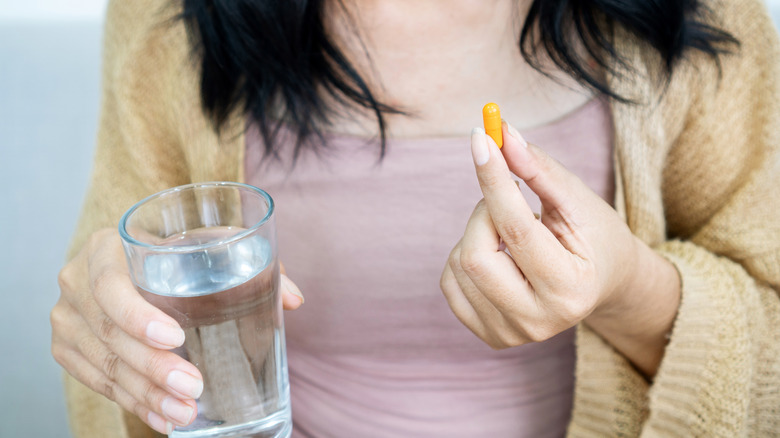Can You Naturally Dissolve Blood Clots In Your Leg?
MedlinePlus explains that blood clots occur when cells, protein, and platelets in blood adhere together. This is a normal, natural process that occurs to halt bleeding and allow for the healing of wounds. Blood clots can be problematic, however, when they form abnormally or don't break down as they should. When this happens, they can block veins and cause damage to organs. Heart attacks, strokes, and pulmonary embolisms are some of the serious complications associated with blood clots.
Johns Hopkins Medicine notes that blood clots should be evaluated promptly by a physician in order to prevent serious problems, including death. Blood thinners are often used to prevent blood clots or keep them from growing larger. Thrombolytic drugs may be used to break down clots. A catheter may be placed through a blood vessel in the groin so that the tube can direct medication closer to the clot. Sometimes clots will be removed surgically, in particular in the arms and legs.
Certain preventative measures might also be used for people at high risk for clotting. Intermittent pneumatic compression (IPC) devices can be worn to periodically squeeze legs and keep blood moving, according to the Cleveland Clinic. Healthline discusses the use of vena cava filters as a means to keep loose blood clots from causing pulmonary embolism.
Natural ways to dissolve blood clots?
Given the seriousness of the complications associated with blood clots, it is not recommended that you attempt to treat them yourself. There are no reliable methods to naturally dissolve blood clots at home, and the longer you wait to see a doctor, the likelier you are to develop life-threatening complications.
However, there are certain supplements that might help prevent you from developing more blood clots in the future, says Healthline. They point to turmeric, ginger, cinnamon, cayenne pepper, and vitamin E as having some evidence that they might help prevent the coagulation of blood, although more research is needed. Healthline recommends consulting with your doctor before making any changes to your diet, because some supplements and foods might interact with your medications.
WebMD notes that losing weight, exercising, making sure you move every two hours when traveling by plane or car, wearing loose clothes, and drinking lots of water when you travel, can all help prevent the formation of blood clots in your legs. In addition, you can try wearing compression stockings. These help to keep blood flowing and prevent swelling.


